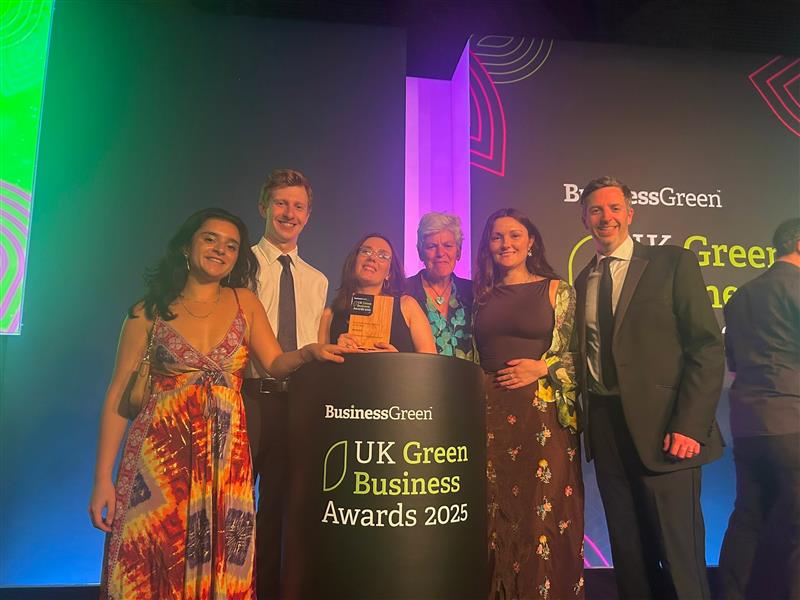Everything you need to know about COP28

The “Era of global boiling has arrived,” said UN chief Antonio Guterres back in July 2023, as the world saw the hottest month on record. 2023 was a turbulent year which saw the impacts of climate change more prominent than ever with extreme heat, flash floods and forest fires. Now, world leaders are preparing to meet in Dubai for COP28, the UN’s climate summit, to discuss how we tackle this crisis.
What is COP28?
This year, the 28th session of the Conference of the Parties to the UNFCCC (COP28) will be held from 30 November to 12 December 2023 in Dubai, UAE.
Heads of state, government officials, industry leaders, academics, and civil society will convene to assess progress on tackling climate change and mitigation.
What are the key themes?
The COP28 Presidency has set out a plan of action, which they state is focused on “matching the highest ambition for negotiated outcomes, with a robust action agenda to implement those ambitions in the real world.” The Presidency has called on governments and key climate stakeholders to take action in four areas:
- Energy
- Climate finance
- Focus on nature, people, lives, and livelihoods
- Full inclusivity
Each day’s programming also incorporates four cross-cutting themes that underpin effective, interconnected delivery. These are:
- Technology and Innovation
- Inclusion
- Frontline Communities
- Finance
While these are the official ‘themes’ and agenda points outlined by the Presidency, there are also other key topics to be aware of:
The Global Stocktake
COP28 will be a milestone moment when the world will take stock of its progress on the Paris Agreement. UN member states will negotiate in Dubai their response to the results of the first-ever global stocktake (GST), which reveals that the global community is not on track to achieve its climate goals.
Loss and Damage
At a meeting in late October 2023, nations from the global north and south were unable to reach an agreement on a loss and damage fund. The 24-member transitional committee is now set to meet again in Abu Dhabi in early November, in a last-ditch attempt to find a compromise and craft a joint proposal for countries to finalise and adopt at COP28.
Fossil Fuel Phase-Out
The recent global stocktake’s findings have recommended “transformations across all sectors and contexts, including scaling up renewable energy while phasing out all unabated fossil fuels” which experts say will have a galvanising effect on COP28.
Many activists, organisations, and some nations are pushing for a “phase out” of all fossil fuels as the only way to limit global heating to 1.5 degrees. However, this push is already facing opposition with top emitters saying they won’t agree to a final agreement which includes the language fossil fuel “phase out.” The conference will discuss this alongside a broader package on energy, including scaling renewables and improving energy efficiency.
Food Systems
A third of the world’s food production is at risk from the climate crisis, research has found – but at the same time, our food systems are one of the key contributors to climate breakdown. COP28 will discuss how global food production must become sustainable to stay within 1.5C, and, for the first time, there will be a dedicated food day, and food, agriculture and water will be the focus of at least 22 major events during the fortnight of COP28 talks in Dubai.
Health
For the first time, COP28 will consider health issues with a global meeting of health ministers and a whole day dedicated to health. A draft “health and climate ministerial declaration” is set to be released at the upcoming conference, which will focus on health sector adaptation, rather than the impacts of climate change on health.
The Controversy
COP28 has already attracted significant criticism from international NGOs, climate activists and civil society groups. Ever since the selection of the United Arab Emirates (UAE) as the host country was first announced in November 2021, the conference has been mired in controversy – from the Abu Dhabi National Oil Company (ADNOC) reading COP28 emails, calls for removal from lawmakers and greenwashing.
Many claim that one of the world’s top oil-producing nations hosting COP represents a blatant conflict of interest; a belief that intensified when Sultan al-Jaber, CEO of the Abu Dhabi National Oil Company, was appointed as COP28 president- designate in January 2023.
However, Mr Al Jaber argues he is uniquely well-placed to push for action from the oil and gas industry. And, as chairman of renewable energy firm Masdar, he has also overseen the expansion of clean technologies like wind and solar power.
Finally, the UAE government’s record on human rights – coupled with severe restrictions on freedom of expression, both online and offline – raises serious concerns about the meaningful participation of civil society in this year’s COP.
Greenhouse at COP28
We are focused on holding governments and industry to account, as well as advocating for climate action and accelerating climate solutions. As the climate crisis intensifies, we believe that we must stand alongside other change-makers by engaging in the COP process to capitalise on the opportunity to galvanise action from world leaders, policymakers, investors and businesses, on the most significant issue we will ever face.
As guardians of the process, the UAE must direct the world’s response to the Global Stocktake and commit to radical action to spur progress. The UAE’s reliance on oil and gas makes it a controversial choice as host. Yet, its participation epitomises the challenge we face to accelerate the global energy transition; we cannot achieve net zero in isolation.
The UAE possesses the power to bring national oil companies, which comprise 80% of production, into the negotiations.
Every nation and every industry must play its part.
Greenhouse is honoured to play our part in protecting our planet by using the power of communications to help shift the world, its industries, policymakers, and people, towards real, tangible, climate action.
We will be back in the Blue Zone at the heart of COP28, representing people, organisations and coalitions working together to drive action on climate and to advocate for radical systems change across food, nature, oceans, and energy.
The Children and Youth Pavilion
Amplifying the voices of future generations
Led by the youth, for the youth, the Children and Youth Pavilion will return for COP28, supported by a group of global youth NGOs and Greenhouse. The Pavilion amplifies the voices of children and youth and drives action on global climate policies vital to securing their future.
The Resilience Hub
Mobilising action on resilience and adaptation
Greenhouse will work with Resilience Rising to bring together people from every region across civil society, the private sector, academia and government, to collaborate and scale up action that makes communities and ecosystems around the world safer and healthier – with justice central to the conversation.
Nature Positive Pavilion
Scaling nature-based solutions to the climate crisis
Once again, we will be teaming up with Nature4Climate to ensure that nature and biodiversity are at the forefront of discussions at COP28 and that nature and nature-based solutions are at the heart of the COP process. The Nature Newsroom will raise awareness of the gap between ambition and implementation on nature, and advocate for a Global Stocktake decision that centres nature and communities.
Food Systems Pavilion
Putting food at the heart of climate negotiations
A third of the world’s food production is at risk from the climate crisis. Greenhouse will support the Food Systems Partnership to accelerate food systems transformation and integrate a food systems approach in climate negotiations.
The Faith Pavilion
Raising the profile of faith groups in climate
COP28 will see the first-ever pavilion dedicated solely to faith groups. The Interfaith Center for Sustainable Development and Greenhouse will raise the profile of the interfaith movement and faith groups at COP28, demonstrating their scale and support for urgent positive climate action.
The Ocean Pavilion
Advocating for ocean science to lead climate solutions
The ocean has been a climate hero, absorbing 90% of human-generated heat and 30% of our carbon. But now, amid climbing temperatures, hypoxic zones and acidity levels, the need for bolstered ocean science has never been greater. Greenhouse is working with the pavilion hosts, Scripps Institution of Oceanography and Woods Hole Oceanographic Institution, to raise the volume of this call to action.
Do you have a message you want to amplify at COP28? Want to set up a meeting with our team on the ground? Want to hear more about our work? Get in touch at info@greenhouse.agency.


